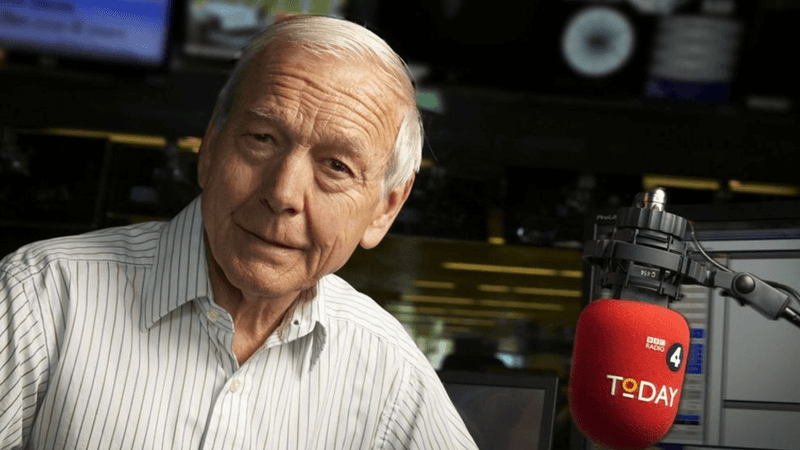The former longstanding BBC journalist John Humphrys has hit out at the corporation’s bias and “Thought Police” in his new memoir, ‘A Day Like Today’.
He said that his retirement from the BBC meant he was now free to write “without the tiniest fear, somewhere in the back of my mind, that the BBC might not approve”.
He said that among other things, he could tell people about the BBC’s great fear “of the politically correct brigade and the most fashionable pressure groups — usually from the liberal Left, the spiritual home of most bosses and staff”.
‘Institutional liberal bias’
Humphrys said that while he still felt the BBC was a force for good, it does not mean it should be immune from criticism.
The veteran broadcaster highlighted comments made by former BBC News Director Helen Boaden, and senior journalist Robin Aitken, who have similarly criticised the organisation for its liberal bias.
He made it plain that he does not think there is some grand conspiracy by “sinister Lefties”, but added: “That there is a form of institutional liberal bias, however, I have no doubt”.
Social engineering
Humphrys said the BBC sometimes found “social engineering” difficult to resist – highlighting its promotion of LGBT issues.
“It should not try to create society in its own image. It should not try to place its powerful finger on one side of the scale of social justice.
“Which is why I raised my eyebrows when the BBC announced it had created the new post of LGBT correspondent — and the man appointed said: ‘I’m looking forward to being the mouthpiece for some marginalised groups…’
“It was the use of the word ‘mouthpiece’ that jarred. Obviously, the BBC must give a voice to minorities, but it must not act as anyone’s mouthpiece.”
Question Time
Humphrys also criticised some of the corporation’s employees who “confuse their own interests with those of the wider world”, and believe the BBC should modify its output to reflect their views.
“One small example was an edition of Question Time. It included a question from a member of the audience who was worried that it might not be morally appropriate for five-year-old children to be taught about LGBT issues.
“Some members of the BBC’s LGBT group, including a business presenter, took to Twitter to complain that the question should not have been allowed.”
Censorship
He acknowledged that the Director of BBC News had responded by emailing all staff to remind them that they are entitled to hold their own views, but not to parade them on social media.
He continued: “She could also have told the group not to be so silly and suggested it probably wouldn’t look good for an organisation whose very essence is the ultimate democratic gift of free speech to engage in censorship.
“But had she done that, it would have caused great offence – and that’s no longer allowed in the modern BBC.”

